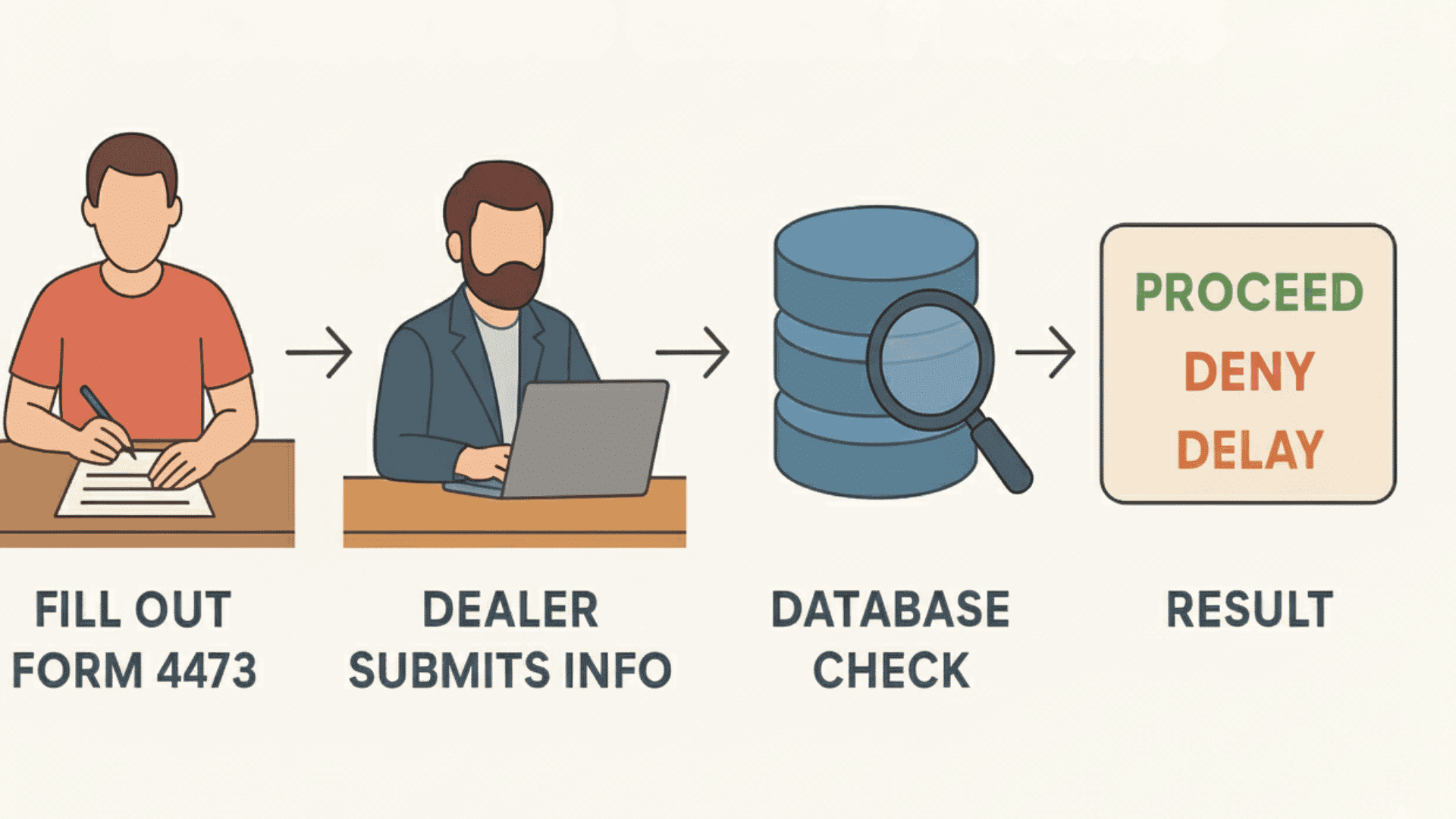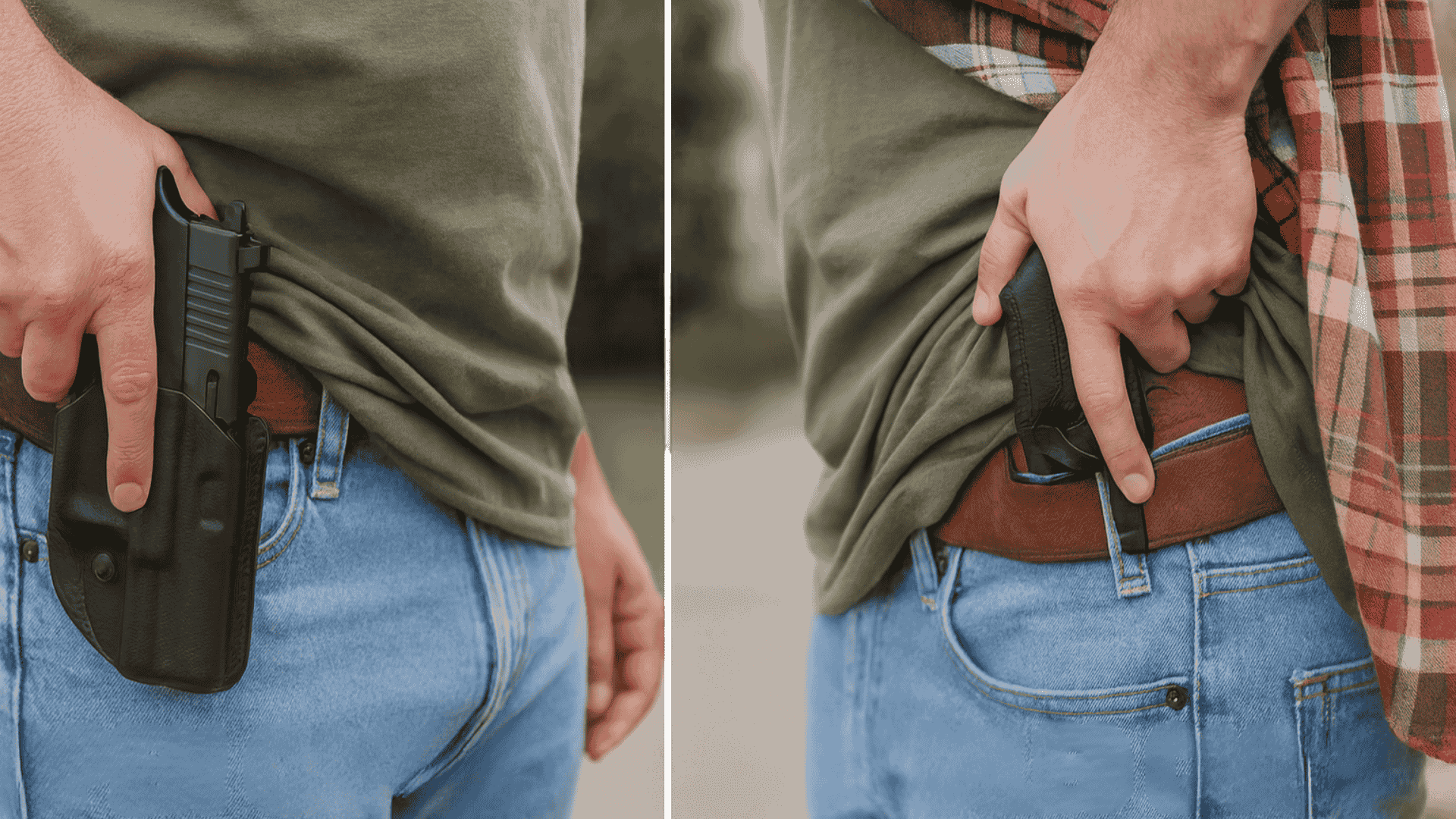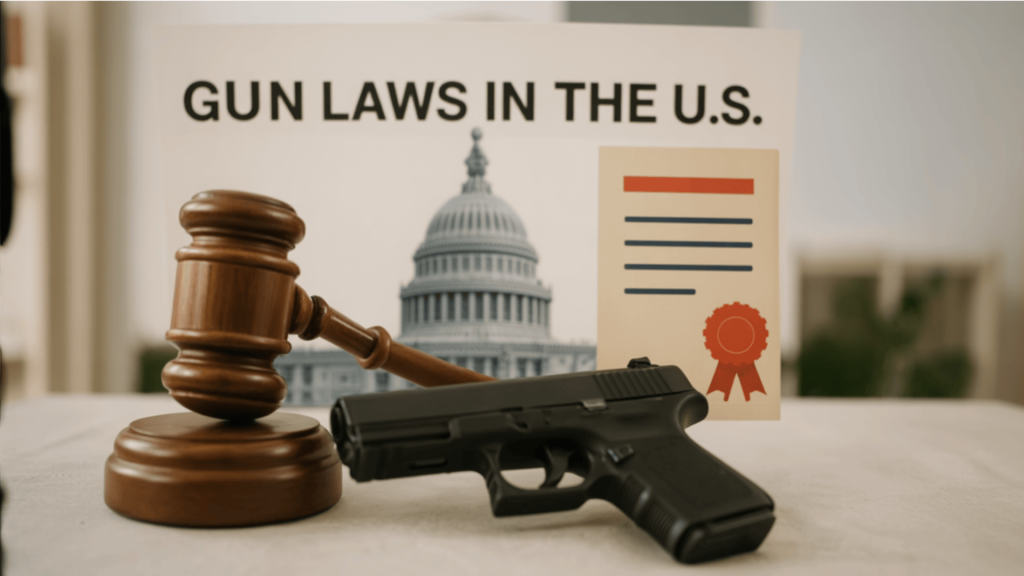Are you confused about gun laws in America? You’re not alone, states and federal rules, understanding gun ownership can feel overwhelming.
The laws change from state to state, and what’s legal in one place might not be in another.
In this blog, I’ll show you the key things every citizen should know about gun laws in the United States.
We’ll break down the differences between federal and state rules, background checks, permits, and common restrictions.
By the end, you’ll have a clear understanding of how these laws work.
Federal vs. State Gun Laws: Understanding the Basics
Gun laws in America work on two levels – federal and state. Understanding both is key to staying legal.
Federal laws set the minimum standards for gun ownership across all 50 states. These rules apply everywhere in America, no matter where you live.
State laws can be stricter than federal laws, but cannot be more relaxed. Think of federal law as the floor, not the ceiling.
Federal vs. State Gun Laws Comparison:
| Aspect | Federal Law | State Law Examples |
|---|---|---|
| Age Requirements | 18+ for rifles/shotguns, 21+ for handguns | Some states raise the age limit to 21 for all guns |
| Background Checks | Required for licensed dealer sales only | Some require all sales, including private |
| Waiting Periods | None required | 3 to 10 days in California, Florida, and others |
| Purchase Permits | Not required | Required in North Carolina, Connecticut |
| Training Requirements | None for purchase | 4 to 16 hours are required in many states |
| Storage Laws | No federal requirement | Mandatory locked storage in 11 states |
| Carry Permits | No federal permit system | State-issued permits with varying requirements |
| Magazine Limits | No federal limits | 10-round limits in California, New York |
| Assault Weapon Bans | Limited federal restrictions | Complete bans in 7 states |
| Red Flag Laws | No federal red flag law | 19 states have emergency removal laws |
This two-tier system means you need to know both federal and your state’s specific rules to stay compliant.
Background Check Process Explained
Every gun purchase from a licensed dealer requires a background check. Here’s exactly what happens when you try to buy a firearm.

The National Instant Criminal Background Check System (NICS) runs checks on gun buyers. Here’s how it works:
- Fill out Form 4473 at the gun store – Complete the federal form with personal info, address, and answer yes/no questions about criminal history
- Dealer submits your info to NICS – Gun store employee calls or uses a computer system to send your details to the federal database
- System checks databases for disqualifying records – NICS searches criminal, mental health, and other government records across multiple agencies
- Result comes back as proceed, deny, or delayed – Most checks finish in minutes, but some take up to 3 business days for review
What Shows Up in Background Checks:
- Criminal convictions – Any felony or misdemeanor punishable by more than 2 years
- Mental health commitments – Court-ordered treatment or declared mentally defective by authorities
- Restraining orders – Active protective orders for domestic violence or harassment
- Immigration status – Non-citizens without legal residency or proper documentation
- Dishonorable military discharge – Kicked out of the military for serious misconduct or crimes
Important note: Private sales between individuals don’t require background checks in most states. This is often referred to as the “gun show loophole.”
Most background checks happen instantly, but knowing what triggers delays can save you time at the gun store.
Open Carry vs. Concealed Carry: Know the Difference

Understanding how you can legally carry a firearm is crucial for gun owners. In the U.S., a majority of individuals carrying firearms do so in a concealed fashion. On top of that, there has been a measurable increase in women who conceal carry firearms, as women are increasingly taking their safety into their own hands, and ladies’ concealed carry clothing options have evolved to offer a wider array of forms of carrying locations that fit every need. The rules change dramatically depending on whether your gun is visible or hidden.
| Type | Definition | Categories / Laws |
|---|---|---|
| Open Carry | Carrying a visible firearm in public. |
|
| Concealed Carry | Carrying a hidden firearm in public. |
|
The key difference between these two styles of carry comes down to visibility and permit requirements. No matter where you live, it’s essential to check your state’s current laws before carrying a firearm in public.
Gun Ownership Requirements by State
State laws vary widely across America. Some states have strict rules, while others have very few restrictions beyond those imposed by federal law.
1. Strictest States (California, New York, Connecticut):
- All sales require background checks and permits – Even private sales need government approval and waiting periods
- Heavy restrictions on assault weapons and magazine capacity – Banned weapons lists and 10-round magazine limits enforced
- Mandatory safe storage laws for homes – Guns must be locked up when not in use, especially around children
2. Moderate States (Texas, Florida, Virginia):
- Dealer sales only require background checks – Private sales between individuals don’t need government approval
- Concealed carry permits available with some weapon restrictions – Training required but permits issued to qualified applicants
- Preemption laws prevent cities from making stricter rules – State law overrides local gun control ordinances
3. Most Permissive States (Alaska, Wyoming, Vermont):
- Constitutional carry allowed with minimal purchase restrictions – No permits needed to carry concealed or open firearms
- Few storage requirements beyond federal law – No state mandates for gun safes or locked storage
- Strong preemption laws limit local gun control – Cities and counties cannot create their own gun restrictions
These categories help you understand what to expect, but always verify your specific state’s current laws.
Permit Processes: What to Expect
Getting a gun permit can be straightforward in some states and more complex in others. The process usually involves completing an application, submitting fingerprints, and passing a background check.
Many states also require safety training, which can range from a short online course to several hours of classroom and range instruction. Fees vary widely but typically range from $50 to $400, depending on the state.
Once everything is submitted, approval can take anywhere from a week to six months. Most applicants need to provide a photo ID, proof of residency, and training certificates.
Because the rules differ so much across the country, the best approach is to check your state’s exact requirements before beginning the process.
Common Restrictions: Who Can’t Own Guns
Federal law prohibits certain people from owning firearms. These restrictions apply nationwide, regardless of state laws.
Federal law prohibits gun ownership for these groups:
- Felons (convicted of crimes punishable by 1+ years)
- Domestic violence offenders under restraining orders
- Those committed to mental institutions
- Drug users and addicts
- Illegal immigrants
- Dishonorably discharged veterans
- Anyone under 18 for handguns (21 for purchases)
These federal restrictions are generally permanent, although some can be reversed through legal processes.
Age Requirements Across Different Gun Types
Age limits for gun ownership can be confusing because federal and state laws sometimes differ. Here’s what you need to know.
Understanding age limits helps avoid legal problems:
Federal Age Limits: For rifles and shotguns, the minimum age to purchase is 18, although younger individuals may use them with adult supervision.
Handguns require you to be 21 to purchase, but many states allow possession at 18. Ammunition follows the same age rules as the firearm it’s for.
State Variations: Some states raise the handgun possession age to 21, while others allow younger people if they have a permit. In certain cases, hunting licenses may also lower the age requirement.
Always check both federal and state age requirements before purchasing or possessing any firearm.
Storage Laws and Safe Requirements
Gun storage laws are becoming more common as states try to prevent accidents and theft. Requirements vary widely by location.
While federal law doesn’t require gun safes, many states do. California requires locks when children are present, Massachusetts mandates locked containers for all guns, and New York requires safe storage in homes with children under 16. These laws aim to prevent accidents, suicides, and theft.
Regardless of legal requirements, best practices include storing guns and ammunition separately, using gun safes or lock boxes, keeping keys and combinations secure, and considering biometric locks for quick access during emergencies. Proper storage protects your family and keeps firearms out of the hands of unauthorized users.
Storage requirements are expanding as more states pass child access prevention laws.
What This Means for Gun Owners
All these laws create a complex web of requirements that gun owners must follow. Staying compliant requires ongoing attention to both federal and state rules.
Understanding gun laws helps you stay legal and safe. Key takeaways include:
- Know your state’s specific laws before buying or carrying
- Get proper training even if not required
- Keep permits current and follow reciprocity rules when traveling
- Store firearms safely to prevent accidents and theft
- Stay updated as laws change regularly
The legal landscape continues to change, so staying informed protects both you and your rights as a gun owner.
Conclusion
Gun laws in America can seem complex, but knowing the basics helps you stay on the right side of the law. Federal rules provide the foundation, while states add their own requirements.
Whether you’re considering gun ownership or simply want to stay informed about national news, understanding these laws is essential.
The most important thing to remember? Always check your local and state laws before making decisions about firearms. Laws can change, and what’s legal today might not be tomorrow.
What aspects of gun laws do you think deserve more clarity? Share your thoughts with us in the comments.






































